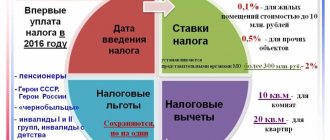The banking sector of the economy affects every resident of a modern metropolis - almost everyone uses plastic credit or debit cards in stores or saves personal funds in a bank.
When choosing a specialty, an applicant has many questions, for example: banking, what kind of profession is this? What growth prospects await him after completing the training?
In the article we will look at the distinctive features of the specialty and find out where you can get a job after receiving your education.
Profession BANKER. How to build a career after college
Description of the profession
According to history, banking appeared 1000 years before the birth of Jesus Christ in Ancient Babylon. Even then, some people lent money at interest or took it to store other people's funds. At the same time, analogues of passbooks and securities began to appear. Banks later originated in Ancient Greece.
The modern banking system is much more developed, and banking services remain just as in demand. Banks carry out different types of operations for different client segments, so the profession of “Banking Specialist” is always relevant.
Importance of Banking
The banking sector is an important part of the economy of every modern state. It regulates market relations, ensures the safety of the population's funds, and provides loans.
As of July 1, 2021, 388 banks and 39 non-bank credit organizations were registered in Russia.1
Main functions of banks:
- Competent financial management of clients;
- Providing cash and settlement services to the population and enterprises;
- Making non-cash payments, currency exchange;
- Providing savings, lending, investment services;
- Ensuring access for clients to transactions with securities;
- Providing storage services for valuables and documents, renting safes and safe deposit boxes.
The functioning of the banking sector affects the state economy, so this area always needs specialists.
SPECIALITY
Banking
Get advice from the admissions committee by leaving an application
More details
General recommendations
A resume is a tool for selling your professional skills on the labor market. The ability to sell, including “yourself,” is an art, the basics of which you must master if you expect to get the desired vacancy in a bank
. A properly written resume for a bank employee, an example of which is presented below, will help demonstrate to a potential employer the benefits of hiring you.
Bank employee resume example
Please note that you can compile and distribute (post on stock exchanges) information about yourself, even if you are currently employed. Firstly
, there may always be a better offer.
Secondly
, the fact that you are currently working indicates that you are in demand and professionally suited. If you are ambitious enough and strive to maximize your potential, then your service offering should always be available for review to potential employers, regardless of your employment.
Qualities of an effective leader Quality level A. 1. General intelligence Above average 2. Logical thinking High 3. General erudition, awareness Above average 4. Ability to extrapolate (intuition) Above average 5.
B. Energy, efficiency, initiative: commercial and business orientation, perseverance, dedication, effectiveness, reliability and responsibility, independence and initiative, motivation to achieve success, ability to make responsible decisions, stress resistance, ability to “take a hit.”
We recommend reading: Tariffs for Hot and Cold Water in Moscow Hv 6,935
Content
The issue of developing professionally important qualities of bank employees is relevant. Knowledge and understanding of the role of banking institutions in the functioning of a market economy, as well as awareness of the political and economic significance of individual banking operations and the requirements of the market (clients, competitors) are of great importance in order for the behavior of bank employees to meet current requirements. The main professionally important qualities necessary for the successful work of bank employees are highlighted:
- providing settlement and cash services, conducting banking operations, lending to legal entities and individuals, accepting savings and deposits;
- checking the correctness of documentation for payments, preparing various statements of current accounts, sales of securities, currency exchange;
- timely maintenance of an operational journal;
- Providing reference information for bank clients.
Banking: Where Can You Work After College?
After receiving the specialty “Banking”, it is not necessary to find a job in a bank. Similar knowledge is required in various other organizations involved in coordinating finances.
List of institutions that require specialists in this profession:
- Insurance companies;
- micro-finance companies;
- credit institutions;
- financial planning departments;
- securities departments;
- legal companies;
- investment projects;
- financial institutions;
- exchanges.
Who can work in a bank?
When applying for a job, a graduate can consider the following vacancies after graduating from college:
- lending specialist;
- operator;
- cashier;
- manager-consultant;
- assistant financial manager.
Let's take a closer look at the functions and responsibilities of each position.
Lending Specialist
A loan specialist at a bank advises on issues of issuing loans, helps the client choose a suitable loan option, taking into account the selection of a loan rate, and draws up a loan agreement. Some specialists decide to issue loans.
Operator
It is he who carries out cash transactions, controls the status of accounts, communicates with bank clients, and makes changes to the database. The position of operator is the most in demand in banks.
Cashier
The main task of the cashier is to conduct transactions with cash and plastic cards. It is impossible to imagine the work of any bank without a cashier.
Manager-consultant
A person who carries out the work of searching for potential clients, processes customer requests by phone, accompanies customer orders and maintains the necessary documentation on them, holds the position of manager-consultant.
Assistant Financial Manager
This position assists the financial manager in planning and managing the bank's finances to ensure capital growth and cost recovery. A big advantage of the profession is the adoption of experience from professionals in training in analyzing the results of financial transactions, managing financial flows and risks.
What personal qualities should a banker have?
The scope of activity of any banker covers not only the provision of financial services to individuals and legal entities, but also the purchase/sale of government funds and interest-bearing securities of private enterprises, cash and bill transactions, etc. The professional responsibilities of a bank employee include consulting, servicing clients of a financial institution, analytical activities, forecasting and planning.
Advantages of being a banker
- monotony - basic banking operations are routine and monotonous work, which also requires high concentration and extreme care;
- responsibility - a banker, like a sapper, has no right to make a mistake. Moreover, the higher the position, the greater the responsibility;
- continuity of positions - in order to occupy a senior-level position, it is necessary to consistently work in all departments of the bank.
Professional knowledge and skills in a resume also imply another very interesting point. You can indicate communication skills in this column. For example, communication skills or the ability to conduct dialogues. Communication is an important element of most professions. And sociable people are welcome in almost any position.
Research shows that in this area the largest percentage of work is in the specialty or in a related industry. However, in recent years the trend has been that the increase in graduates with a banking education is not equal to the number of open vacancies.
Describe a bank employee based on his business and personal qualities
Reply within 5 minutes! Without intermediaries! List of references 1. Barkhaev B.P., Syromyatnikov I.V. Introduction to the profession: from social role to professional subjectivity. M.: Education, 2021. - 192 p. 2. Bazarov T.Yu. Personnel Management. - M.: Academy, 2021. 3. Batarshev A.V., Alekseeva I.Yu., Mayorova E.V. Diagnostics of professionally important qualities. - St. Petersburg: Peter, 2021. 4. Bodrov V.A. Psychology of professional suitability. M.: PER SE, 2021. - 511 p. 5. Vygotsky L.S. Imagination and creativity in childhood. - St. Petersburg: Soyuz, 1997. 6. Zharkovskaya E.P. Banking. M.: Omega-L, 2021. - 480 p. 7. Ivanova E. M. Psychotechnology of studying a person in labor activity. M.: Publishing house Mosk. University, 2021. - 232 p. 8. Davydova E.N., Rybakov A.E. Office work. Minsk: Tetra System, 2021. - 236 p. 9.Druzhinin V.N. Psychology of general abilities. - St. Petersburg: Peter, 2021. 10. Ilyin E.P. Differential psychophysiology of men and women. St. Petersburg: Peter, 2021. - 544 p. 11.Istratova O.N., Exacousto T.V. Directory of a psychologist and consultant to an organization. Rostov-on-Don: Phoenix, 2021. - 638 p. 12. Karpov A.V. Psychology of management. - M.: Gardariki, 2021. 13. Kozlova N.V., Berestneva O.G. Professional competencies: expert and statistical analysis. Vestnik Tomsk. state un-ta. - 207. - No. 295. - P. 166 - 173. 14. Karzaeva N.N. Valuation and its role in the accounting and financial policies of the organization. M.: Finance and Statistics, 2021. - 420 p. 15.Sour D.V. Accounting and taxation in retail trade. M.: Publishing House "Glavbukh", 2021. - 320 p. 16. Kazimagomedov A.A. Banking. Organization and regulation. M.: Academy, 2021. - 272 p. 17. Kuznetsova V.V., Larina O.I. Banking. Workshop. St. Petersburg: KnoRus, 2021. - 264 p. 18.Kulagin B.V. Fundamentals of professional psychodiagnostics. M.: Medicine, 2021. - 456 p. 19. Krutikova T.D., Ginzburg L.M. Rational systems of tax accounting and reporting: A practical guide. M.: AKDI “Economy and Life”, 2021. - 246 p. 20. Kuznetsova S.L. Computerization of office work (computer technologies in office work). M.: Business school "Intel-Sintez", 2021. - 378 p. 21. Kuznetsova T.V. Office work in accounting: A practical guide. M.: Accounting Bulletin, 2021. - 224 p. 22. Kuperstein V. Modern information technologies in office work and management. SPb.: BHV - St. Petersburg, 2021. - 178 p. 23. Lobanova T.N. Banking. - M.: BDC - Press, 2021. 24. Maklakov A.G. Professional psychological selection of personnel. Theory and practice. - St. Petersburg: Peter, 2021. 25. Mananikova E.N. Psychology of management. M.: Dashkov i K, 2021. - 320 p. 26.Mogilevkin E.A. Career growth. Diagnostics, technology, training. St. Petersburg: Rech, 2021. - 336 p. 27. Platonova N. Certification of personnel in a commercial bank // Personnel management. - 2021. - No. 20. — P. 56 28.Professionalism. Edited by Karayani A.G., Sulimov Yu.G. M.: Military University, 2021. - 276 p. 29. Pryazhnikov N. S., Pryazhnikova E. Yu. Psychology of labor and human dignity. M.: Academy, 2021. - 412 p. 30. Psychology of management. Edited by Nikiforov G.S. St. Petersburg: Peter, 2021. - 639 p. 31.Psychology of management activities. Edited by Batarshev A.V., Lukyanov. M.: Psychotherapy, 2021. - 624 p. 32.Psychology of health. Edited by Nikiforov G.S. St. Petersburg: Peter, 2021. - 607 p. 33.Psychology of professional health. Edited by Nikiforov G.S. St. Petersburg: Rech, 2021. - 480 p. 34.Work psychology. Edited by A.V. Karpova. M.: Vlados, 2021. - 350 p. 35.Romanov A.N. Computerization of audit activities. M.: UNITY, 2021. - 204 p. 36. Semibratova O.I. Banking. M.: Academy, 2021. - 224 p. 37.Sokolova A.S. The concept of “competence” in modern psychology. // Bulletin of Tver State. un-ta. - 2021. - No. 6. — P. 104-108 Spivak SI. Professionally important qualities of the subject: retrospective assessment. — URL: https://bs-arl.ru 07.15.2021. 38. Stenyukov M.V. Documentation. Office work: A practical guide to document support for the activities of an enterprise. M.: PRIOR, 2021. - 356 p. 39. Tavasiev A.M. Banking. M.: Dashkov and Co., 2021. - 640 p. 40. Turbanov A., Tyutyunnik A. Banking. Operations, technology, management. M.: Alpina Publishers, 2021. - 688 p. 41. Khodachnik G.E. Fundamentals of banking. M.: Academy, 2021. - 256 p. 42. Tolochek V.A. Modern psychology of work. St. Petersburg: Peter, 2021. - 479 p. 43. Fayol A. General and industrial management // Management is a science and art: A. Fayol, G. Emerson. F. Taylor. G. Ford M. Publishing house Republic 1992. -351 p. 44.Shadrikov V.D. On the content of the concepts of “ability” and “giftedness”. — Psychological magazine. - T.4. - No. 5. - 1983. - pp. 38-46. 45. Schultz D., Schultz S. Psychology and work. St. Petersburg: Peter, 2021. - 456 p. 46. Shekhovtsova L.F., Tyutyunnik E.I. Workbook for career guidance and career consultant: Methodological manual. - St. Petersburg: Publishing house TsRPKRR and SPO, 1997. 47. Yakovlev A. S. Accounting policy at the enterprise // Glavbukh. 2021. No. 2. P. 2 - 27.
We recommend reading: Do bailiffs come to your home to pay utility bills?
How to build a career in a bank
If you're building a career from scratch, you can start by taking low-paying positions, such as an assistant accountant, a clerk, or a customer support employee.
Having specific knowledge, education and special personal qualities, a young specialist can quickly move up the career ladder and, as an option, become a middle manager in less than a year.
For career growth in the bank, an employee receives additional knowledge through webinars, trainings and seminars. Typically, such events are organized by the employer himself on his territory or by sending employees to training centers. By constantly developing, an employee has every chance to move up the career ladder and become a department head, deputy or director. Great prospect, isn't it?
What education is needed to work in a bank?
To obtain a profession you can complete:
- University;
- technical school or college;
- courses in banking.
Please note that the specialty “Banking” exists only in technical schools and colleges; in universities there is no such specialty anymore.
But no one prevents you from further obtaining a higher education in a specialty with an economic profile, which will make you a specialist of a higher level.
Is it possible to work without education?
Sometimes banks hire employees without education, but then you should not count on a highly paid position. If you want to grow, you need to study; there is a wide choice (from courses to university).
What can a beginner without experience expect?
A newcomer to banking should initially count on “simple” vacancies, such as assistant financial analyst, consultant, sales manager of bank products, and operator. But over time, everything can change, take for example the experience of the founder of the banking dynasty, Mayer Rothschild, who began his journey with very little earnings.
Without experience, the easiest way is to become an employee of Sberbank or get a position in another large company. Small organizations have fewer vacancies.
In combination with training in related professions such as insurance, economics and accounting, there is a high chance of getting a prestigious position.
Certificates or certificates can be obtained on the basis of basic education through training courses in a few months.
Responsibilities of a specialist
The responsibilities of a bank employee depend on the functions of the department to which the specialist belongs. Basically, this is work with clients: consulting on credit products, servicing bank cards, financial analytics, forecasting, planning. As in any job, a banker has specific job responsibilities and is responsible for their implementation. Compliance with banking service standards and norms is an important part of the productive work of the entire institution.
What personal qualities should a bank employee have?
An employee of any department must have specific knowledge and be able to communicate with people. The success of the entire bank depends on the high-quality implementation of service standards.
These specialties are suitable for people who:
- Have a good memory;
- Stress-resistant;
- Purposeful;
- Quickly learn new things;
- Can think analytically;
- Responsible, scrupulous;
- Able to communicate with people;
- Hardworking, persistent.
If you have these qualities, you can achieve great results in banking.
Pros and cons of the banker profession
From the outside it seems that working in a bank is tempting. What is it really like? Let's consider the pros and cons of the banker profession.
Pros:
- Good salary;
- Bankers are in demand in every corner of the country;
- Career growth;
- Awards for work well done;
- Comfortable office and working conditions;
- Working in a bank is prestigious;
- A full social package is provided.
Minuses:
- High financial responsibility;
- Not always normal working hours;
- At the beginning of a career – low salary, monotonous work;
- It is necessary to comply with the dress code.
Is it worth going to work in a bank?
When thinking about the question of which bank to go to work for and whether it is even worth going to work for a bank, you need to weigh all the pros and cons of banking and make an informed decision.
What you can learn while working in a bank:
- teamwork for results;
- competent presentation of information on bank products;
- understanding and applying legislation in the financial services sector.
In addition, salary is a significant argument when making a decision.
Education
It is more difficult for an applicant who has no work experience. Here you will need to focus on personal qualities and skills. You can give examples of practical training in a bank while studying at a university, and describe what successes he achieved there. After all, everyone once started their career without work experience. Beginners can also get a job, even if not for the most prestigious job, but further advancement in their career will depend on it.
Achievements:
When filling out this section of the resume, you need to dwell on the specific personal successes that the applicant has achieved while working at previous places of work. Here you cannot use general phrases; you need to display specific indicators, with numbers displayed, so this section should be filled out, for example, as follows:
- Monitoring the implementation of agreements between the bank and the client;
- Conducting an analysis of the creditworthiness of a potential borrower;
- Maintaining cash registers and forecasting the turnover of monetary assets;
- Maintaining a file cabinet of documents;
- Execution of transactions in the lending market;
- Generating account statements;
- Issuance of payment cards.
From the definition of the profession “banker” it follows that this is an employee of a financial and credit institution who is highly qualified and performs various operations with cash and accounts. Typically, his work involves direct or indirect interaction with clients (individual, corporate, business entities) by providing them with a wide range of services.
Description of the profession
Earlier it became known that Sberbank will begin returning employees to the office from Monday, May 18. RBC's interlocutors reported that 30% of ordinary employees and 70% of managers will be able to return to work as usual. An exception will be workers over 65 years of age, as well as those with chronic diseases.
If you put in enough effort and develop professionally, then there is a chance of becoming a department head in about a year. In the future, you can take one of the management positions, up to the director of the bank.
A banker must have the skills of drawing up reports, keeping records of banking transactions and preparing documentation, understand the methods of protecting banking information and be able to apply them in practice, and master business etiquette.
Important qualities
Currently, you can get an education at almost any university. To do this, you need to enroll in the Faculty of Finance or Economics. It is better to choose the specialty “Banking” or “Finance and Credit”.
We recommend reading: Whom Dostoevsky Compared With Children in Crime and Punishment
The internal auditor, in particular, points out existing deficiencies in the control system and evaluates how well employees perform their duties. Why is all this being done? The main goal is to identify sources of potential loss.
A loan officer is the person on whom it depends entirely whether you ultimately receive a loan or not. In his work, he is guided by the bank’s internal policy and his assessment of the client’s solvency. Based on these two criteria, he decides whether to provide a loan or refuse.
Operator
In addition, a financial analyst monitors market trends, calculates important economic indicators, assesses risks and, based on the findings, develops recommendations for management. They relate to planning the activities of a banking institution, effective investment of finances and raising the level.
An employer cares about both the personal and business qualities of an employee. Which abilities are more important? How to deal with negative traits? Each profession has its own characteristics. We will tell you how to make the right choice and how to evaluate a future employee in our article.
Salary level in the banking sector
Many people are interested in the question: how much does a banking specialist earn?
The average salary of a banking specialist per month in Russia was 72.5 thousand rubles, as of March 2021 (see graph below).
The salary level of a banker depends on the position, work experience, education of the specialist and the characteristics of the bank.
The average salary of a banker in Russia is slightly higher than the average income level of the population. But taking into account how much managers and directors earn at the bank, the figure increases significantly. The difference in the salaries of an ordinary employee and a manager is significant.
Average salaries as of March 2021
2
:
- cashier-operator - 45,000 rubles.
- back office specialist - 55,000 rubles.
- financial manager - 84,000 rub.
- financial analyst - 100,000 rubles.
- leading specialist of the market risks department - 112,000 rubles.
Comparing the incomes of foreign and Russian bank employees, it is worth noting that the salary of a Russian banking employee is significantly less than that of their foreign colleagues. And despite how much bank employees earn, the banking community occupies an excellent position in terms of wages in the Russian Federation.
We hope that this article will help answer the question of whether banking is worth choosing as a profession. Despite all the complexity, it is interesting and attractive. If you think that working with finances is for you, then feel free to get an economics education.






